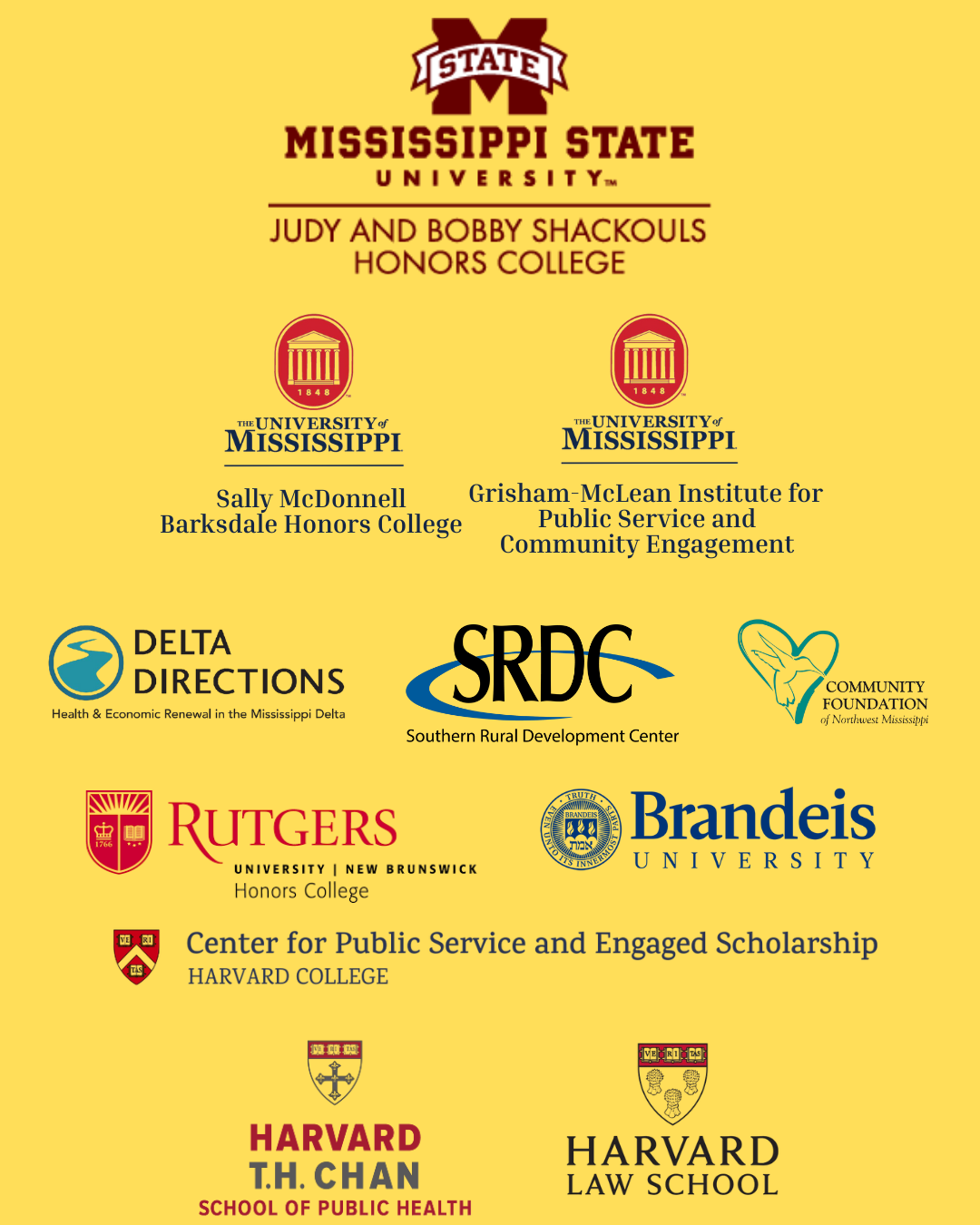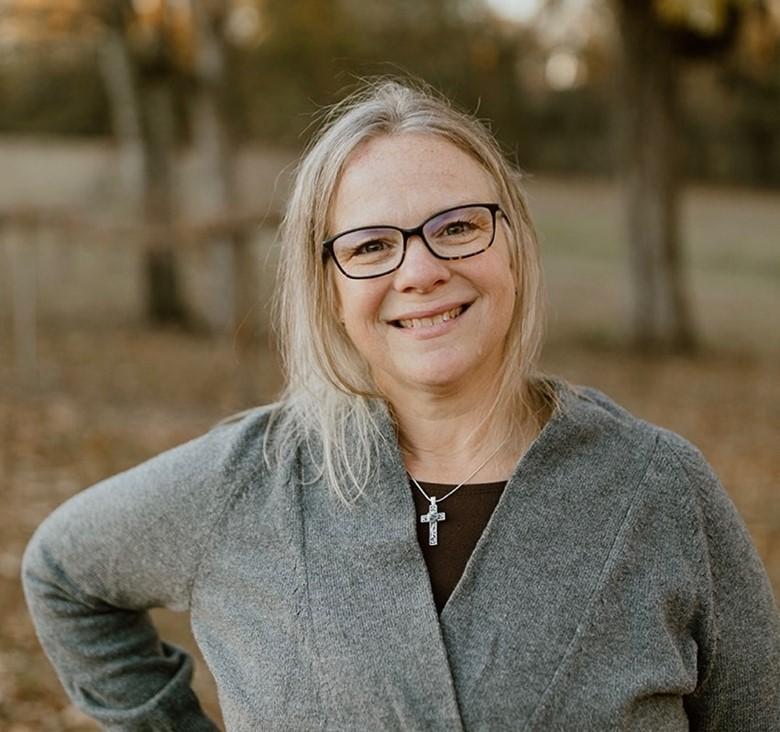Delta Scholars Program
Cultivating Changemakers
Applications for the 2026 cohort of Delta Scholars Program are closed.
Summer Research Institute and Delta Innovation Tour Dates
Summer Research Institute and Delta Innovation Tour
June 1-12, 2026
Delta Scholar Program Application
Eligibility: Students who are currently enrolled full-time in a two-or four-year college or university not expecting to graduate in Spring 2026 with a grade point average of 3.4 are encouraged to apply. Preference will be given to students who have completed two years of coursework and are from or attending school in the Multi-State Delta Region (which includes AL, AR, IL, KY, LA, MO, MS, and TN) or a partner institution.
Applicants must submit the following:
-
Statement of Interest: A letter concisely describing your research experience, current interests, and career goals, including why you are drawn to this particular scholar program.
-
Edit, be succent.
-
Formatted: Double spaced, 12-point black font, with 1-inch margins and be no less than 500 words and no more than 1000 words
-
It is expected that this submitted work is produced by scholars themselves and does not involve the use of a Generative AI tool to develop-AI doesn’t know you as well as you do.
-
- Biosketch Essay (350-650 words): "Tell us the story of you, start wherever you want, include any details you feel are relevant."
- Edit, be succent.
- Formatted: Double spaced, 12-point black font, with 1-inch margins and be no less than 350 words and no more than 650 words
- It is expected that this submitted work is produced by scholars themselves and does not involve the use of a Generative AI tool to develop-AI doesn’t know you as well as you do.
- Resume
- Transcript
- Two letters of recommendation
- one from faculty and one non-faculty
- Letters must be on organizational letterhead and address participation specifically in the Delta Scholars Program.
- Applicants who advance to semi-finalist will be required to participate in a virtual interview with the committee in March 2026.
Questions should be emailed to deltascholars@honors.msstate.edu
About the Delta Scholars Program
The Delta Scholars Program (DSP) exists because visionary supporters believe that investing in students can change entire communities. With donor partnerships, we challenge bright and motivated undergraduates become leaders ready to collaborate with communities on issues related to public health, economic renewal, and community resilience.
The program is a two-part academic and engagement experience selects outstanding students for their achievements and commitment to service, guiding them through pre-sessions in the spring, a two- week Summer Research Institute and Delta Innovation Tour, and a Community Project. The experience culminates in a fall conference bringing together partners to continue to build community and collaboration.
Participation in DSP includes engagement with and learning from diverse partners brought together under the umbrella known as the Delta Directions Consortium. This involves researchers from universities, outreach practitioners from nonprofit organizations and the Extension Service, leaders from philanthropic foundations, and many others. Scholars also build their networks to include an array of other leaders from community and regional organizations.
Program Content
Summer Research Institute , Delta Innovation Tour , and Cultivating Leaders Fall Conference
Through a 12-day intensive learning experience known as the Summer Research Institute scholars are introduced to professional workshops, speakers, and research presentations. They embark on a Delta Innovation Tour, an immersive experience for learning more about the history of the Multi-State Delta Region as model of innovation to build skills to foster growth and change. DSP highlights issues and solutions pertinent to the region, (which includes AL, AR, IL, KY, LA, MO, MS, and TN).
There is much to be learned from the Multi-State Delta Region and future leaders benefit from learning from and understanding the complexities of this special place. These lessons can serve as models and be applied in other communities. This culminates in the annual Delta Regional Forum, intended to engage community and regional development practitioners and scholars working in and with partners in the region to learn from each other in pursuit of population health and wellbeing, economic renewal, and community resilience.
Scholars are invited to reconnect and present at a three-day Cultivating Leaders Fall Conference in collaboration with our partner institutions to culminate the eight-month long experience. This conference provides an opportunity for students to share updates on their projects, receive continued mentorship, and engage with students and faculty working on Multi-State Delta issues.
Summer Research Institute and Delta Innovation Tour
Through a 12-day intensive learning experience known as the Summer Research Institute scholars are introduced to professional workshops, speakers, and research presentations. They will embark on a Delta Innovation Tour, an immersive experience for learning more about the history of the Multi-State Delta Region as model of innovation to build skills to foster growth and change. DSP highlights issues and solutions pertinent to the region, (which includes AL, AR, IL, KY, LA, MO, MS, and TN).
While the region has had challenges, it has also been on the front lines of change, including community health movements and regional economic development through tourism. There is much to be learned from the Multi-State Delta Region and future leaders benefit from learning from and understanding the complexities of this special place. These lessons can serve as models and be applied in other communities. Among other activities, this will involve the annual Delta Regional Forum, which is intended to engage community and regional development practitioners and scholars working in and with partners in the region to learn from each other in pursuit of population health and wellbeing, economic renewal, and community resilience.
Cultivating Leaders Fall Conference
Scholars are invited to reconnect and present at a three-day Cultivating Leaders Fall Conference in collaboration with our partner institutions to culminate the eight-month long experience. This conference provides an opportunity for students to share updates, receive continued mentorship, and engage with students and faculty working on Multi-State Delta issues.
The goal of this intellectual exchange is to provide both sides with fresh perspectives, promote dialogue that can push their work forward, and foster networks of young leaders that might collaborate in the future.
Delta Scholars Program Partners
DSP is led through the Shackouls Honors College in collaboration with many partners.These include the Southern Rural Development Center, based at MSU, the Community Foundation of Northwest Mississippi,Brandeis University, the University of Mississippi (including Sally McDonnell Barksdale Honors College and Grisham-McLean Institute for Public Service and Community Engagement), Rutgers University, and Harvard University (including Harvard College, Harvard Law School, and the T.H. Chan School of Public Health).

Delta Scholars' Director

Director: Professor Eleanor M. Green, M.Ed.
Delta Scholars Program 2025 Cohort
The 2025 cohort included students from eight institutions representing five states providing an excellent opportunity for college students to learn, network, and grow together.
2025 Delta Scholars Program Alumni
Kayle Amos, Mississippi, University of Mississippi
Anna Claire Carter, Arkansas, University of Mississippi
Zayd Elhedoudy, New Jersey, Rutgers University
Rowan Feasel, Mississippi, Mississippi State University
Naiya Fort, Louisiana, Alcorn State University
Anne Marie Sullivan, Mississippi State University
Bianca Hemsath, Kentucky, University of Mississippi
Saige Kenner, Louisiana, Southern University A & M College
Spencer Lile, Mississippi State University
John Robert Walker, Mississippi, Yale University
Alexandra Wall, Mississippi, Copiah-Lincoln Community College

